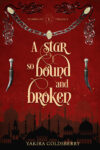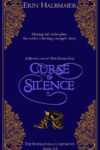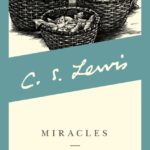Beauty and Truth 4: The Chief End Of Story
I love stories. If I didn’t love them, I wouldn’t be hosting this website!
Yet I do believe that sometimes, in our zeal to defend what we enjoy and oppose poor arguments against story, Christians may come up with some poor justifications for fiction.
- It keeps the children distracted, I hope harmlessly.
- I like it, and there’s nothing wrong with entertainment.
- Only legalists oppose all fiction, and I don’t want to be one of them.
- It reminds me of a) Moral Values, b) the Gospel c) the value of cultural engagement.
 My mission is not to deny all those reasons for enjoying stories, but to suggest that they result from what I term the chief end of Story. This is based on what the Westminster Shorter Confession says is “man’s chief end,” as noted last week:
My mission is not to deny all those reasons for enjoying stories, but to suggest that they result from what I term the chief end of Story. This is based on what the Westminster Shorter Confession says is “man’s chief end,” as noted last week:
Man’s chief end is to glorify God, and to enjoy Him forever.
We have other goals: to love others, to help the poor, to love our families, to evangelize. But those are results of our chief end. Stories also have other ends: to flesh out truths and thus reinforce them, to entertain us, or to help us engage culture. But those are also only results.
Story’s chief end
The “best” criticism of fiction says that Christians have “more important things” to do than to sit around enjoying even good stories. That’s why the Scripture-based “chief end” line is helpful, because it reminds us that Christians’ life mission is not only evangelism or church work, but glorifying God in all we do. That includes tasks like evangelism and story-reading.
As we should ask about man’s chief end, so we should ask about all other activities.
Story-suspecting Christians often ask, “Of what use is story?” without defining that elusive term “use.” Without knowing it, what they’re really asking is:
What is the chief end of Story?
If we answered that question according to some silent preconceptions, we’d answer: “The chief end of Story is to remind us of valuable truths and morals.” Or: “The chief end of Story is harmless entertainment, for myself or others, if there is truly nothing better to do.”
But why should that definition be any different from that of the chief end of man?
Instead I would answer:
Story’s chief end is to glorify God and help us enjoy Him forever.
Let’s break this down.
Story’s chief end …
Again, this is the main “point” of a story. Yes, everything should have a point — or in other words, pragmatic, practical value! But we don’t want to define “point,” “use,” or “pragmatic” wrongly. If humans have a chief end, stories and all else should have that same chief end.

… is to glorify God …
This sounds “spiritual.” But it’s a key point of Scripture: that God created the universe to glorify Himself. By “glorify Himself” I mean to act for His Name’s sake, to vindicate His holy nature, to make Himself known to the nations and be rightfully worshiped (Ezekiel 36: 22-23, 32). All God’s deeds, even love for His creation, are done for this chief end — not as some ego trip, but because in glorifying Himself, God gives people His greatest gift: Himself. (For more on this topic, I recommend this from Desiring God: Is God for Us or for Himself?)
Stories are a good part of God’s creation. Therefore good stories also glorify Him. They act for His Name’s sake, vindicate His holy nature, and make Him and His truths known to the nations so He can be rightfully worshiped, rightfully enjoyed.
… and help us enjoy Him forever.
Sam Storms Biblically grounds our definition of “enjoy” like this:
Enjoying God is not a secondary, tangential endeavor. It is central to everything we do. We do not do other things hoping that joy in God will emerge as a by-product. Our reason for the pursuit of God and obedience to him is precisely the joy that is found in him alone.
Story’s unique worship
Christians may enjoy God in many ways: church work, evangelism, family, recreation, civic action. We enjoy God in our songs, writing, doctrine exploration, and story-reading.
Still, enjoying stories is unique from all other modes of worship, for at least three reasons.
1. A story’s form more-directly reflects God’s true-life Story.
Like good songs or nonfiction books about doctrine, good stories use excellent craft and content to reflect God’s nature. But unlike those things (whose uses in worship Christians rarely question!), stories directly reflect Scripture itself. After all, though God’s word contains songs and systematic theology, God did not communicate His Word in only those forms. Instead He gave His Word as Story. The first, truest, primary, only real-life Story.
2. A good story’s structure echoes God’s Story.
I define “good story” as one that contains a protagonist and plot, supporting characters, and a well-crafted story-world that operates according to Biblical rules.
 Just as any kind of house, no matter how “postmodern” its outside architecture, is built on a foundation of physical laws, so any good story, no matter how “postmodern,” is built on the basis of the Christian worldview.
Just as any kind of house, no matter how “postmodern” its outside architecture, is built on a foundation of physical laws, so any good story, no matter how “postmodern,” is built on the basis of the Christian worldview.
- A good story’s protagonist and plot, supporting characters, and well-crafted story-world are founded on God and His plan, His people and humankind, and our world.
- God’s true Story has a Hero, God Himself, and the plot of His eternal plan that many oppose. It has supporting “characters.” And it has a well-crafted story-world: reality.
- Man’s stories also have heroes — either God Himself, implicitly, or a human hero who has a desire that villains or circumstances oppose. They have supporting characters. And they have well-crafted story-worlds; the best ones use words well, as God does, to portray them.
This is true even if the story has no explicit Biblical connections (e.g., what many readers would claim makes a work of fiction “Christian”). Rather, all stories have some semblance of the Christian worldview. The more there is of that worldview, the better the story becomes. But the more the author tries to reject that worldview, the more the story’s value drops.
3. A good story applies and amplifies beauty and truth.
Yes, God’s Story is real. Man’s stories are “real” only in our imaginations.
But our heroes can reflect Him. Our plots can portray His good against His enemies’ evils. Our characters can reflect us. And our story-worlds, and the words used to describe them, can reflect His beauty and truth, and how those are visible even in a fallen world.
Stories are more than mere means to repeat truth memorably. They’re more than a way to understand our culture or reach out to friends. They’re more than “entertainment.”
Stories give us Bible-reflecting, unique worship of God alone, for His glory and our good.








































An awesome article, and yet a confusing and complicated concept, to me.
I have wished very badly that my favorite stories could be true, and felt so disappointed that my world seems so boring and futile by comparison. Real life seems to have so little significance compared to Story.
And yet, the thought that the story must be true is one of the few things that helps motivate me to do anything at all. The story is not “literally” true in that the events, worlds, and people of the story never existed. But the adventure and significance that I see in all my favorite stories has to exist. The fact that I feel the lack of that significance so keenly means it has to exist.
By thinking too hard about the ramifications of the Bible and Christ both being called “the Word of God,” I managed to make myself totally confused and frustrated. By “He gave His Word as Story” do you mean that the Bible is completely story in essence? Or are you referring to the incarnation of Jesus Christ, whose life on Earth is the great, “real-life” Story? But, isn’t the “real-life Story” all of history and all of creation, since, as you say elsewhere, reality is story with God as the Hero? All of the above? I’m confused. Surely the Bible doesn’t only contain stories (as you said), and surely the Bible/the Gospel isn’t really the only “true story” in the literal sense; there’s lots of true stories. Like, the Titanic.
This sounds to me like C.S. Lewis’s famous quote from Mere Christianity:
(While this may not be a sure sign that Christianity is true, it does seem a confirming sign. Otherwise, this desire is thoroughly useless; evolution should have weeded it out.)
Absolutely those great stories are in a sense true, because they point to Christ. He is the Hero of what Lewis and Tolkien famously termed the “truth Myth,” the only epic tale with transcendent symbols, a perfect plot, and the sudden turn of evil into great good.
Here, I did mean “Word of God” as in the Bible.
One great, Epic Story, spanning the whole of reality, from start to “finish.”
As Scripture’s account spans all of reality — from His creation in Genesis to His new creation in Rev. 21-22 — yes, that’s what I mean. We’re in the “middle” of His Story now, though its ending has already been written and the canon closed.
In this sense I consider the Bible, and the reality it describes, the Story, with all other true stories — all historical events, each one of our lives — stories within the Story.
Within Scripture, the account of Noah (with him as “hero”) is a story within the Story.
The account of King David is also a story within a Story.
Your story, and mine, as we live our lives, is also part of that greatest and truest Story.
Stephen,
That was an interesting article and I enjoyed it.
However, it seems to be a problem with just enjoying stories for entertainment. God didn’t make us robots and he was definitely okay with us having some pleasure in our lives. Read Ecclesiastes (my favorite book in the Bible) for that.
It seems as Christians (also in our secular culture) have a problem with just enjoying something for what it is. I don’t get that.
I do read stories for other things as well like theme or characters or that author’s worldview. But first and foremost, I would like to entertain as well.
For example, I went to the used bookstore today and picked up a copy of Sidney Sheldon’s Other Side of Midnight. His best known and most-popular novel. I would have never read Sidney Sheldon….but I was told I should read it to check his storytelling skills, crafting of a story and how entertaining it is to read.
So I will read it in the next several days to see if that’s true. Now if it’s only an entertaining page-turner…is there something wrong with that?
Marion
Marion, I’m in complete agreement that fun, even entertainment, can glorify God!
I think this dichotomy — glorifying God through stories vs. enjoying them — keeps coming back up because we just can’t believe that the purpose of our existence is not just to Be Good or to Do Our Duty for God. Rather, our purpose is to enjoy Him, and thereby also enjoy His good gifts. That is a glorious, freeing, and yet scary truth, for it requires that all our little graceless rules and checklists be tossed out. This truly is about relationship, and while God never promises we’ll never suffer for Him, He also gives us very good gifts to show us His love — including stories and entertainment.
One explanation for this provocative yet Biblically based concept, which some label “Christian Hedonism,” is in another article at Desiring God:
The book Desiring God is also very helpful for getting this into one’s foundation.
I agree. We keep wanting to “use” things for other ends. Even liberal professing “Christians” who claim they’re all about Art and All That are addled with guilt complexes. To them, art isn’t really valuable because it reflects the Creator and His wonders and gives us joy from Him, but because it Drives Us to Social Action. The same is true of genuine Christians. Story can’t be valuable simply because it’s story, right?
To some extent I agree. If we don’t understand the purpose of Story, its positives will be only shallow, fleeting “entertainment” in the worst sense of the word. But if we do see that good story honors God, even when we’re not specifically thinking of God’s Name when we’re reading it, paradoxically, that may just seep into our minds and hearts …
I’m still working on this. Maybe my next column should make it more personal.
Recently I’ve been viewing some of the fantastic Green Lantern: The Animated Series episodes. Don’t laugh! This series, which on the surface looks like just another mindless cartoon, has some well-thought-out action, characters, and intricate plotlines. Do I pray before each episode or take notes on particular redemptive moments? Not at all. But does the creativity implicitly reflect God’s image as Creator, and do the good-versus-evil themes implicitly and even explicitly reflect His true Story, sneakily reinforcing those beauties and truths in my mind and heart? You bet they do.
“Entertainment” is rarely (perhaps even never) harmless. And that’s the wonder of it.
If you’re asking me, I don’t know; I’ve never heard of that author or read his works.
For you, is there?
If not, then — after some thought about your question — I might suggest this. Somehow my wife and I have begun drifting into thinking this, occasionally, though not as often as we should, when we’re enjoying one of God’s good gifts: time with friends, a movie, a delicious dinner item or dessert, or a wonder of nature. It goes like this:
You know, God didn’t need to give us (name of good gift). But He did anyway.
I’m not sure how we started this little homespun “meme.” Yet I think it’s a step in the right direction. It doesn’t “spiritualize” things in the way that well-intended Christians do when they figure they need a spiritual logo or layer of jargon to sanctify a Thing. It does, however, grow toward that gold standard (which we will never reach) of truly, overtly glorifying Him, even subconsciously or silently, for all His good gifts.
That last point–God didn’t have to give us x, but he did–makes me think of a Sandi Patti song, called “That’s the Love of God” with the lyrics:
What made God take so much care
To make creation glow?
He could have made it black and white
And we’d have never known.
And what made God send Jesus
To die on Calvary?
Of course it was this joyous thing
I feel inside of me
.That’s the love of God…
Stephen,
Thanks for your response to my post. I will respond to your post later.
But, your series about story got me thinking about a question.
I posted it on my blog:
Is Reading a Story only for the Middle Class?
I would like to have your feedback on this one.
http://kammbia1.wordpress.com/2012/05/19/wisdom-of-marion-2-15-is-reading-a-story-only-for-the-middle-class/
Thanks,
Marion
[…] how I would answer that question: Beauty and Truth 4: The Chief End of Story. […]
[…] Speculative Faith Blog — Lars Walker Critiques ‘The Christian Fantasy’ on Beauty and Truth 4: The Chief End of Story […]
[…] a story doesn’t lead me to enjoyment — true enjoyment is the same as even subconscious worship of God — it’s likely a poor story. I was concluding this the other day when considering many Christian […]